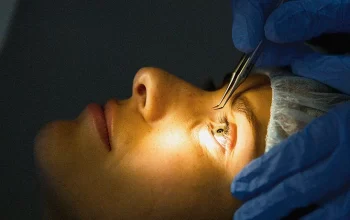There are some common signs that you are unhealthy. Some of them include fatigue, a rash on your skin, tingling in your hands, and diarrhoea. When you have any of these signs, you should consider visiting a doctor. They can provide you with a list of treatments, and help you make an informed decision about your health.
Tiredness
Tiredness is a common symptom that many people experience. It is not a disease in itself but can be a sign of an underlying health problem.
There are many things you can do to improve your fatigue. Simple changes such as avoiding smoking, reducing alcohol and caffeine, and making sure you are getting enough sleep can all make a difference.
Fatigue can be a sign of a serious medical condition, such as heart disease, a thyroid disorder, or even a mental health condition. If you are experiencing chronic tiredness, talk to your doctor.
A physical examination may include questions about your diet, exercise, sleep habits, and recent changes in your life. The results of the exam can help your doctor determine the cause of your fatigue.
A weakening heart
Heart disease is a leading killer in the U.S., causing more deaths than all types of cancer combined. While some heart problems can be difficult to diagnose, they can also be accompanied by a number of symptoms.
The most common symptom is chest pain. Other symptoms include fatigue and shortness of breath. If you have had any of these, it’s important to see a health professional as soon as possible.
A weaker heart means it can’t pump blood efficiently. This may cause fluid to back up in the lungs, resulting in congestion and wheezing. In addition, it causes the kidneys to work harder to remove water and sodium, and can result in a build-up of unwanted fluid in the body.
In addition to these symptoms, it is possible to develop an ailment that has nothing to do with the heart. For example, high blood pressure or diabetes can cause damage to the heart.
A rash on the skin
A rash on the skin can be a sign of an unhealthy condition. Fortunately, most rashes are harmless, but a rash that doesn’t respond to treatment or grows quickly could be a sign of an internal problem or infection.
When you first notice a rash, you should visit your doctor to find out what it is and how to treat it. Many rashes can be treated with over-the-counter medications. However, a rash that persists more than a week and has no improvement may be a sign of something more serious.
Some rashes are caused by autoimmune diseases. These conditions cause the immune system to attack the body’s own cells. The rashes can appear as a flat, red patch on the skin, or they can be raised and blistered.
Tingling in the hands
If you experience frequent tingling in your hands, it may be a symptom of an underlying health problem. Your healthcare provider can diagnose the cause and prescribe a treatment.
Peripheral neuropathy is a condition affecting the nerves that send messages to your brain about physical sensations. This can cause tingling, numbness, and disability. There is no cure for peripheral neuropathy, but with proper diagnosis and treatment, you can improve your symptoms.
The tingling may be temporary or chronic. It can be a sign of an underlying problem, such as fibromyalgia. Tingling in the hands is also a symptom of an autoimmune disease, such as celiac disease.
A pinched nerve in the back can also cause numbness and tingling in your hands. When the nerve is compressed, it cannot send a proper signal to the brain.
Diarrhoea
If you experience diarrhea, you may be suffering from an infection. The condition can be serious. It can lead to dehydration, organ damage and even kidney failure.
Diarrhoea is a symptom of an illness that can be caused by many different types of bacteria. There are also many common medicines that can cause diarrhea.
In addition to infections, diarrhea can also be caused by a food intolerance. You should call a healthcare provider if you have persistent diarrhea.
Diarrhoea can be treated with fluids and an electrolyte solution. Your doctor will decide whether you need antibiotics, an IV or another treatment.
In addition to treating the cause of your diarrhea, you can avoid it by keeping track of your other symptoms. Also, avoid drinking caffeine. Caffeine can make diarrhea worse.




